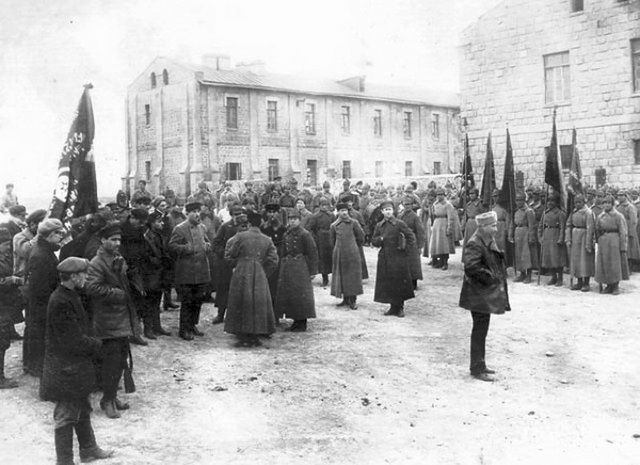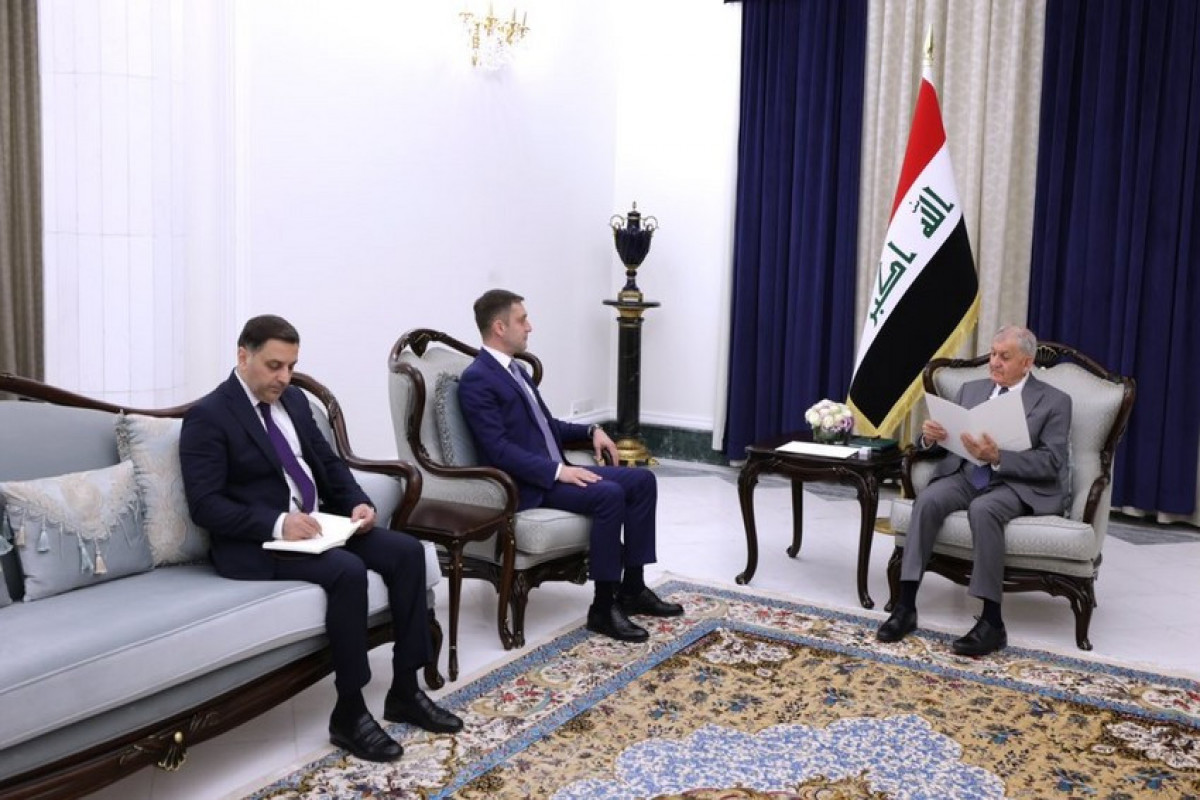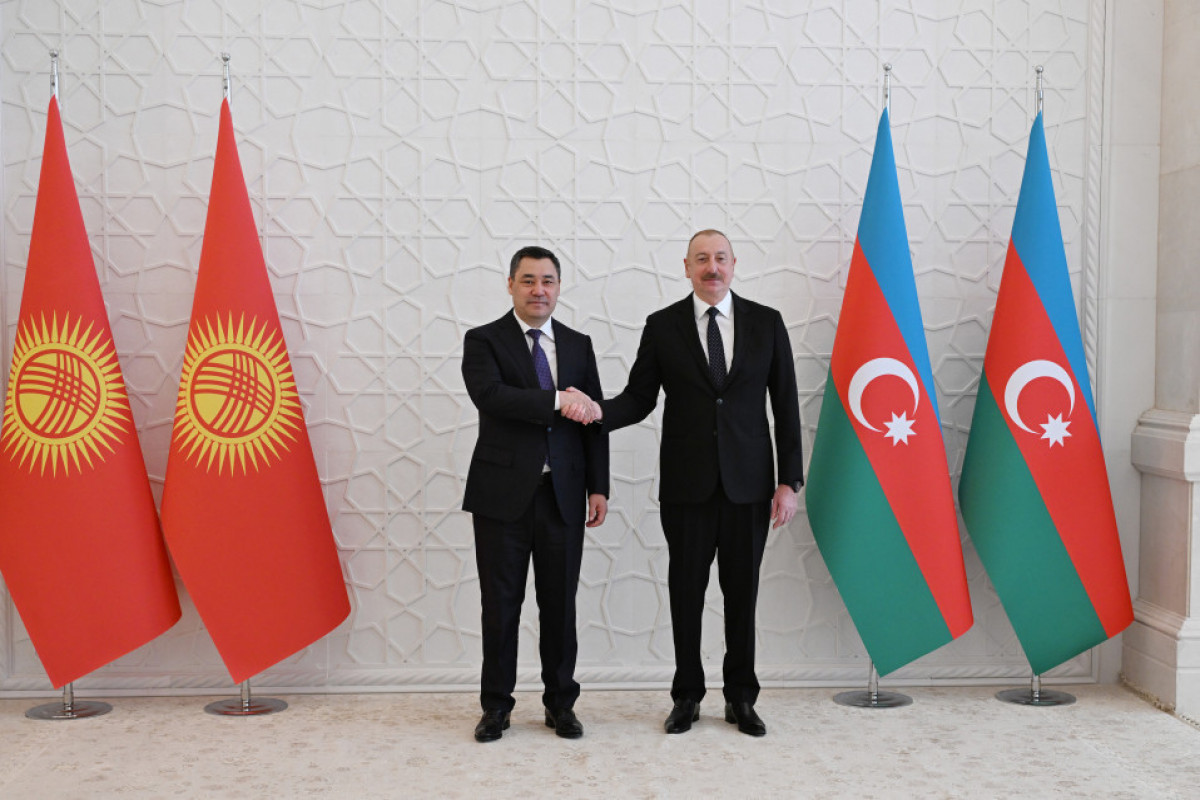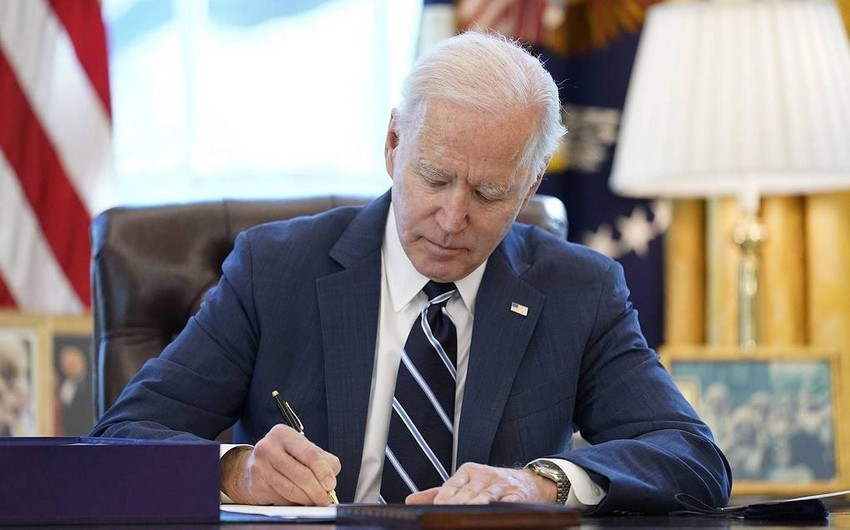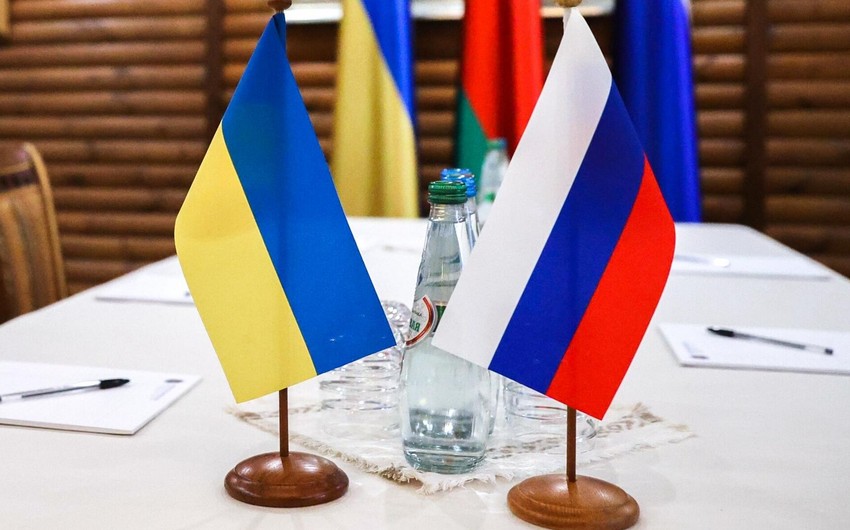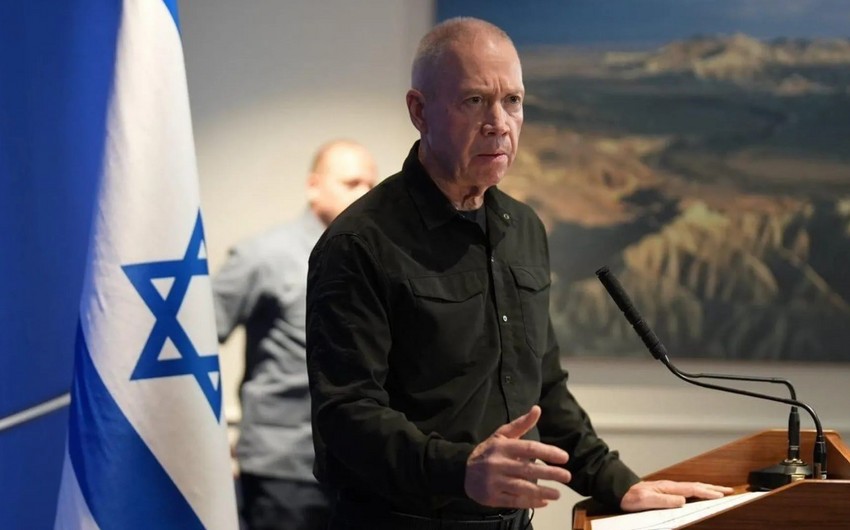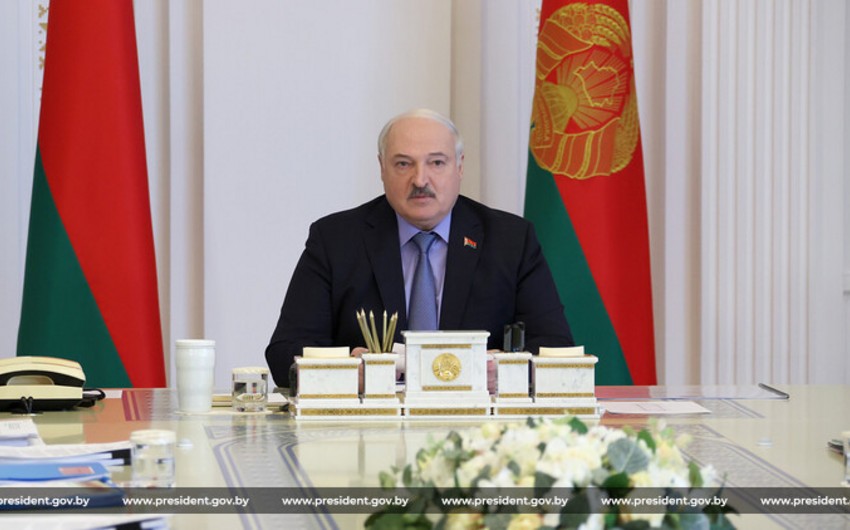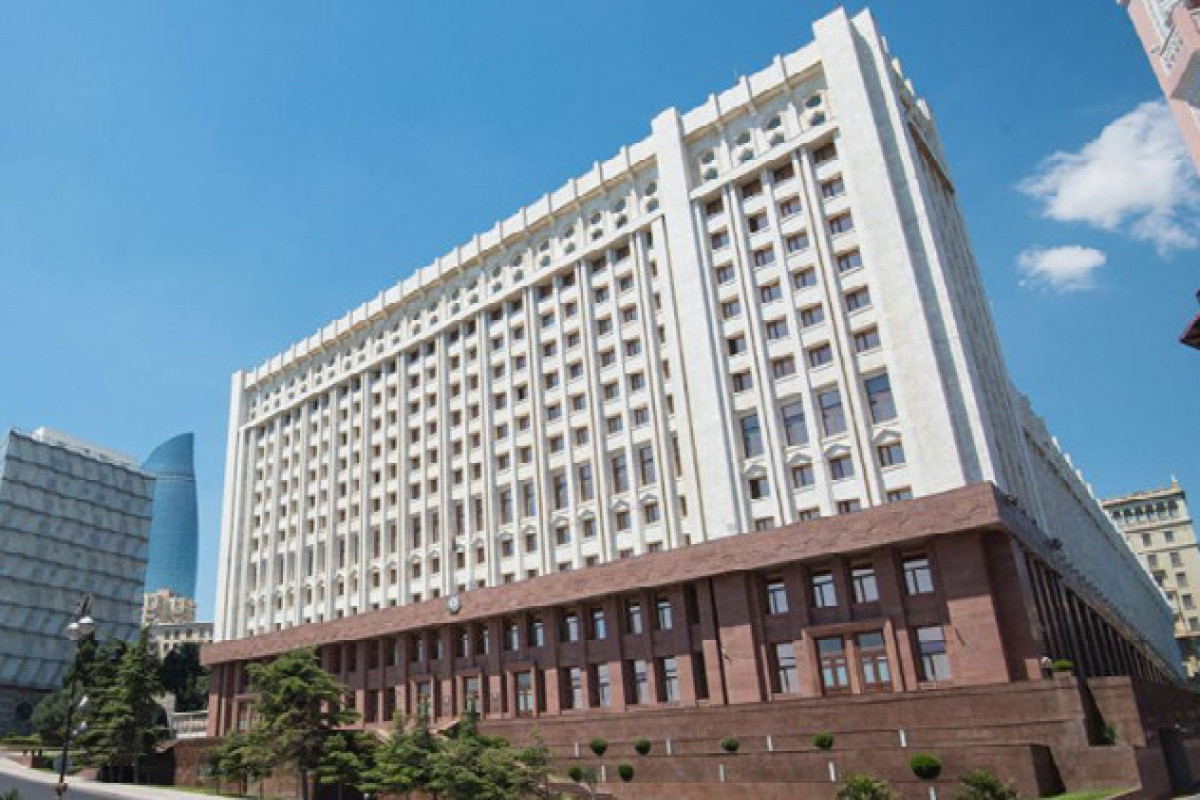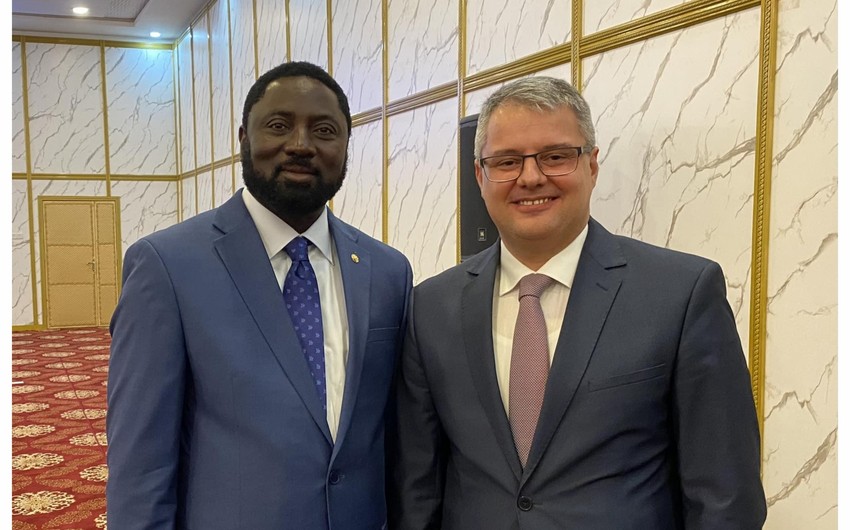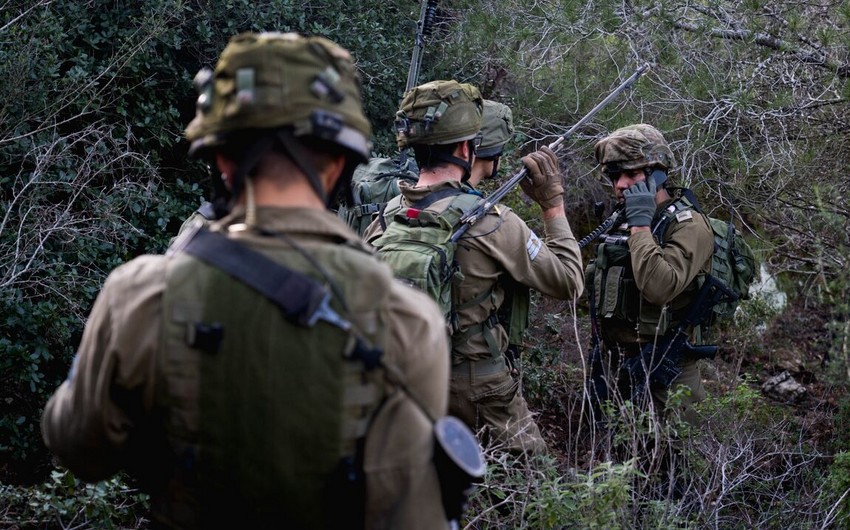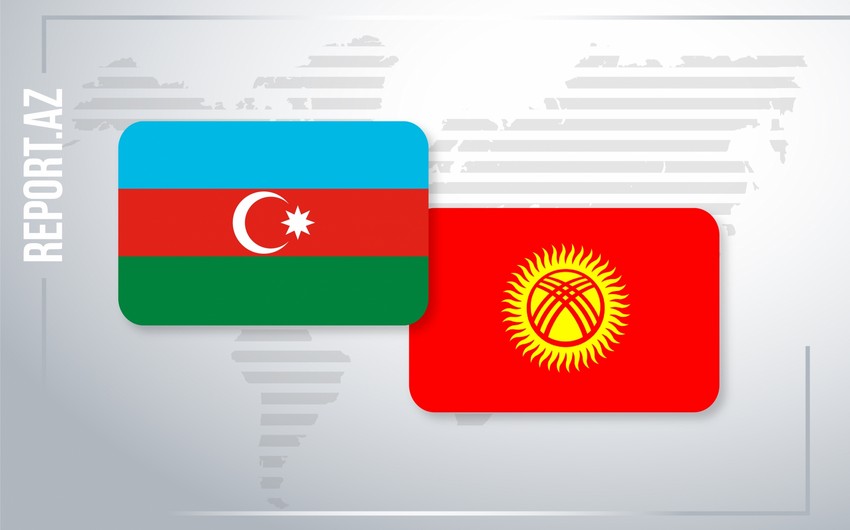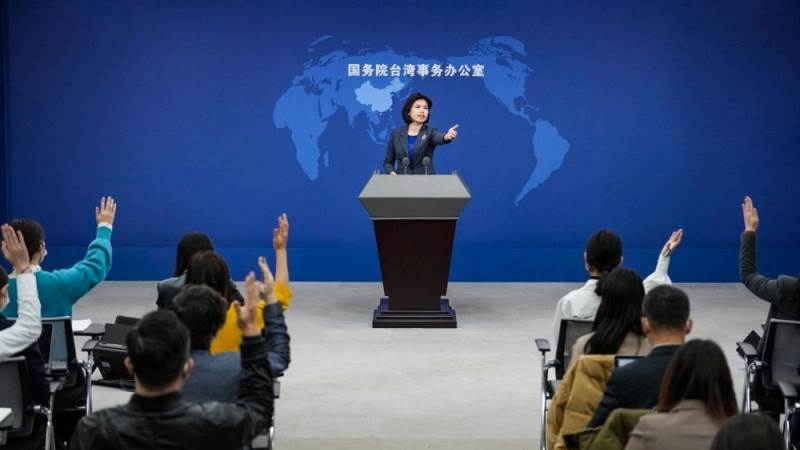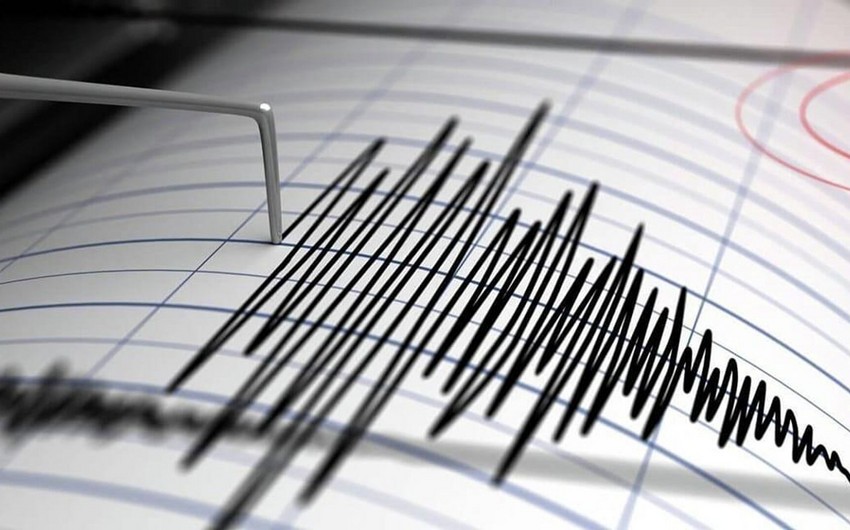A hundred years ago an event of great geopolitical significance occurred – the fall of Baku and the Republic of Azerbaijan to the Red Army.
When the question is asked: why did this happen it is usually answered with an explanation of how it happened, neatly side-stepping the actual issue why? It seems to be in few peoples’ interest to ask the reasons why Baku, Azerbaijan and then the whole Southern Caucasus, including Armenia and Georgia, were mopped up by the Red Army and the Soviet Union in around a year. And it would have been quicker if Marshal Pilsudski of Poland had not had a hand in the matter, delaying Lenin’s and Stalin’s plans.
So we are told that Baku fell, opening the door for the Red Army to Transcaucasia, because of the Soviet Union’s desire for the oil of Baku. But anyone would have wanted and taken these very important oil fields if they could – the British had held them during 1919, the Ottomans had sent an army to them in late 1918, the Germans had their eye on them at the same time. the White Russians would have taken them if the Red Russians hadn’t defeated them, and the Armenians certainly would have taken them if they had had the power.
There were a number of economic, political and strategic reasons why the Soviets wanted to take possession (or repossession from the Russian viewpoint) of the area that had become Azerbaijan. First, of course were the natural resources, and in particular the oil fields of Baku, which composed 75% of the Soviet supply and which was vital for industrialization and the survival of the Communist State. Second, the conquest of Azerbaijan, the gateway to the Southern Caucasus, opened the way to Armenia and Georgia as well as to Persia for Bolshevism. Thirdly, it facilitated the export of communist propaganda in all directions from this strategic hub. And lastly it blocked the access and influence of the Western Imperialists, particularly Britain, from the region.
Lenin said that the oil of Baku was indispensable to the Soviet State. He was right. No oil, no industrialization; no industrialization no future in a world dominated by the Western industrialized capitalist nations. Twenty years later Hitler sent his armies to get the oil of Baku on a great diversion toward the Caucasus. His Generals promised him it as a birthday present. But he only got a cake with “BAKU” icing on it and his armies perished at Stalingrad, the great turning point of the biggest war in history. Baku was very important.
So the importance of Baku and its oil were a given. If the Bolsheviks did not take it someone else would have. And it is very unlikely that the small and very new Azerbaijan Republic could have fended off most of the forces desiring it without substantial allies to back them.
And that takes us to the real answer to the question: why did Baku fall in April 1920 to the Soviet Union? The answer to that can be summed up in a sentence: Great Britain and its relationship to the Armenians. Let’s take the two elements one at a time.
First of all, it has to be remembered that Britain occupied Transcaucasia from late 1918, when it won its Great War, until well into 1919, when it suddenly decided to withdraw the bulk of its military forces.
About 2 years ago I started writing a book about the geopolitical struggle between Britain and Russia in the Caucasus. It will be published in the Summer (Insallah). It is a complex story but I will attempt to simplify the 1918-20 part for the purposes of this article.
At the end of 1918, as a result of its Great War victory, the British Empire had gained control of a vast land area stretching eastward from Istanbul into Anatolia, the Caucasus and Central Asia. Behind this area a great belt of land, running east from Palestine, through Mesopotamia/Iraq and into Persia lay in England’s hands, to do what it wished with. In front of this Britain was supplying and supporting various military forces that were disintegrating the Russian state through civil war. The Great War of 1914 had not only succeeded in destroying Germany, and the Hapsburg and Ottoman Empires, but it had also seemingly won Britain the Great Game of a century of geopolitical rivalry with Russia. Russia had been disabled by being lured into a disastrous war on Germany that Britain insisted it fought to the last Russian. And when the Tsar and then the Revolution’s Provisional Government continued to oblige they let in Lenin and the Bolsheviks. And Britain effectively pinned Russia down through stoking a civil on its territory for nearly 3 years. It believed it had the Bolsheviks and Russia on the ropes.
Yet in the moment of triumph of Imperial Britain, and in less than two years, Russia was back in the Caucasus and it was pressing down on British Persia/Iran. And Russia was no longer Tsarist Russia but Bolshevik Russia.
This extraordinary turn of events is not explained to any satisfactory degree in the history books of the Anglosphere. Consequently, accounts are bemused by England’s behaviour in 1919, which is really only understandable within a geopolitical context. Why the great statesmen of England did what they did deserves more attention and explanation. The history of Transcaucasia and its Anatolian hinterland is really inexplicable without trying to understand their calculations and effect on events.
Winston Churchill, who features strongly in this story, once called Russia “a riddle, inside a mystery, wrapped in an enigma.” But Russia is hardly an enigma. For the most part of two centuries it has controlled the Caucasus and unless someone prevented it from doing so, it remained in authority over the region. The peoples of the Caucasus were simply too many and too divided to resist the power of the Russian State. Only two internal collapses of it, in 1917 and 1990, provided the space for new states to be born and to thereafter function with a degree of independence.
Britain is much more an enigma in relation to the Caucasus than Russia actually is. Of course, the Caucasus is hardly in Britain’s backyard, but neither are the great expanses of the world she conquered and controlled for centuries elsewhere. But Britain, despite its immense power, had a fundamental problem with the region. That was because British power was sea power and the Caucasus were too continental for Britain’s main weapon of war, the Royal Navy, to be employed there to any great effect. Lord Salisbury once warned the Armenians that his navy could never traverse the Taurus Mountains to assist their objectives. Neither could it climb over the mountains of the Caucasus. What was needed were soldiers and that is what Britain lacked.
During the Great War Britain had built a massive army, larger than it had ever accumulated in its history. Soldiers were available to Britain: in Persia, Turkey and among the Moslem peoples of the Caucasus, who were opposed to Russian domination and would have willingly fought against it. And there lay the key to a successful defence of the Caucasus against the Russians if the will was there to make it a reality. In 1918-19 it seemed that the foundations of a very advantageous situation were there for Imperial Britain to dominate the region and put the Great Game of a century to bed. There was even Russian state collapse during the previous year to assist it. And then…?
Where there is a will there is a way. But in 1919 Britain’s will failed and there was no way. Imperial Britain, seemingly at the height of her power, having won its greatest of wars, baulked at the situation that confronted it, and the Imperial retreat began, unexpectedly, in the moment of victory. The Caucasus region and its peoples, who had been encouraged to form buffer-states and given a brief taste of independent existence, fell back into Russian hands – now Bolshevik hands – for nearly three quarters of a century. And the locals were left to make the best of it.
Much of the world is very credulous about Britain. That is hardly surprising, since Britain imposed itself upon the world in three great worldwide wars, conquered a large part of it in the course of these, established successful and powerful colonies as a result, and made the English language the default language for the writing of history, among other things. That historical process of forceful action, sustained over centuries, has produced conditioned reflexes which have inhibited thought and resulted in a great deal of credulity about the reality of events. That is why, I presume, I cannot find a realistic explanation for the fall of Baku in the English language today.
But any attempt to write the history of this period without considering the primary role of Great Britain in shaping the destiny of the peoples of the Southern Caucasus and Anatolia, is really “Hamlet without the Prince”.
In one major respect did Lenin have the advantage over Lloyd George: Britain had a divided mind when it assumed the mastery of the Caucasus in 1918, which meant that it did not know what to do as clearly as the Bolsheviks did. Was it operating the European Balance of Power or fighting the Great Game? These two fundamentals of British Foreign Policy had become tangled up since Edward Grey made the alliance with Russia in 1907 to encircle Germany. And having tangled up the two issues Britain just couldn’t untangle them again and see what had to be done in the world it had become master of.
And this same predicament in Britain’s divided mind, that was never resolved, produced the disastrous turn of events of the 1930’s when England zig-zagged all over the place and just could not decide who its real enemy was (this phenomenon is given the term ‘appeasement’ to dismiss thought about it).
The thing about the period just after the Great War was that although a new world had dawned – not least of all because the New World (America) had been drawn into the War – the people who presided over this new world had minds that had been formed in the period of the old world, before the cataclysm. They could not act how they would have acted in the old world and had to adjust for a new world that was unfamiliar and which they had no experience of in practice. History, the basis of past understandings and consequent actions, could not help them. And without bearings, they blundered.
The very act of fighting the Great War had also changed the minds that had considered issues in an entirely different light before the fighting had begun and had went on, and on, and on.
But, to get back to the Caucasus…
Although Britain signaled its intention to withdraw from its newly acquired Transcaucasian territories in mid-1919, citing financial restraints and the demobilization of its massive armies as reason, it gave many indications that it was prepared to establish a new order there, which it was prepared to defend.
Lord Curzon took over the Foreign Office and he was known to be one of the greatest of the Great Gamers from the Indian Empire, with a special interest in preserving Iran for the British Empire. He sent the famous Sir Halford Mackinder into Southern Russia as High Commissioner, and Mackinder had put forward the famous geopolitical dictum of “who controls the heartland, controls the world.” Mackinder had theorized about the importance of buffer-states to separate Germany and Russia and stop the Bolshevik virus from contaminating Western Europe. In July 1919 Curzon had managed to secure the appointment of Oliver Wardrop, an academic expert on Georgia and the Caucasus, as Britain’s High Commissioner in Tiflis. Wardrop was a strong supporter of the independence of the Caucasian states. Colonel Stokes, another supporter of this policy, was appointed representative in Baku.
At this point Britain attempted to encourage the Georgians, Armenians and Azerbaijanis to become their cordon sanitaire by holding out the carrot of League of Nations recognition to them.
But just as the Supreme Council of the Allied Powers was conceding de facto recognition to Georgia and Azerbaijan through the League of Nations the British Cabinet and military were sabotaging their defence. The Chief of the Imperial General Staff, Sir Henry Wilson, insisted he did not have the army to defend the Caucasus line, although stating that losing the Caspian to the Bolsheviks would represent a “first class disaster” for Britain. To defend the Batoum-Baku line, Wilson knew that Britain had to make friends again with the Turks and allow them to retain Istanbul. In this argument he was supported by Churchill, Bonar Law and Edwin Montagu. However, opposition came from the Prime Minister, Lloyd George, who had great hopes for his Greek adventure in imposing a punitive treaty on the Turks.
The Caucasus states having been recognized by the League of Nations, Bonar Law, leader of the Conservatives, stated the Allied Governments’ position clearly in the House of Commons, on 24 February 1920:
“If the communities which border on the frontiers of Soviet Russia, and whose independence or de facto autonomy they have recognised, were to approach them and to ask for advice as to what attitude they should take with regard to Soviet Russia, the Allied Governments would reply that they cannot accept the responsibility of advising them to continue a war which may be injurious to their own interests. Still less would they advise them to adopt a policy of aggression towards Russia. If, however, Soviet Russia attacks them inside their own legitimate frontiers, the Allies will give them every possible support.”
This was understandably taken as a British guarantee to provide all support necessary in the event of a Soviet invasion. However, in late April, when the Foreign Minister of Azerbaijan called the British Foreign Office, expressing his fear of an imminent Bolshevik attack, Lord Curzon cabled the British High Commissioner in the Caucasus, Oliver Wardrop, with the following advice:
“There is no question of our giving Georgia and Azerbaijan active military support in case of an attack on them by Soviet forces, and you should be careful not to put any such interpretation on Mr. Bonar Law’s statement of February 24th.”
The appeals of Georgia and Azerbaijan to receive the arms and ammunition promised by the Allied Powers were constantly turned down by the British War Office which argued, despite the Prime Minister’s approval in principle for the Republic’s to be supplied, that no decision had actually been taken to dispatch military assistance. George Osborne at the Foreign Office instructed his officials to inform the Georgians and Azerbaijanis that “we find we have not sufficient military supplies available…” This was despite the fact that there was a great surplus of ordinance produced in Britain on the expectation that the Great War would last into 1920.
The Chief of the British Imperial General Staff, Sir Henry Wilson, wrote to Admiral Cowan on 11th March, informing him that the British Military had moved their focus elsewhere, in a policy of retrenchment: “My whole energies are now bent to getting our troops out of Europe and Russia… and concentrating all our strengths in our common storm centres, viz. England, Ireland, Egypt and India.”
As Richard Ullman notes:
“To provide even… two divisions – much less seven – was out of the question… The British government’s campaign of repression in Ireland was demanding increasingly large forces… And from India, Mesopotamia (Iraq), and Egypt came insistent requests for military manpower… This meant giving up the Caucasus and even much of Persia, and concentrating on the defence of India and the oil fields of the Persian Gulf.”
More than any other state in the region the Azerbaijan Republic took British Democracy at face value and aspired to be a model for liberal democracy in the Moslem world. Its leaders were educated and earnest men who saw in the British occupation an opportunity for the building of democratic national structures within a stable and secure environment.
But it seems that the British forces needed to defend the Azerbaijan democracy were required instead to deal with the more important matter of repressing the Irish democracy and other dissatisfied peoples elsewhere in Britain’s expanded Empire!
The records confirm that Baku would not be defended, no military forces were to be provided to the Transcaucasian Republics and no military supplies were to be diverted from General Denikin’s retreating White Russians to the Georgians or Azerbaijanis. Sir Henry Wilson recorded his thoughts in his Diary that night, as to the military reality of the situation:
“Curzon, who with Lloyd George is in Paris, sends a ridiculous wire about Georgia and Azerbaijan and the necessity of supporting them… We had a meeting at the Foreign Office, and I gave a lecture on a map showing the impossibility of standing on the forward lines in defence of India. I showed that Palestine-Mosul-Khanikin-Burujird was the only possible line, and that we should adjust our policy to that line. It was quite true that Georgia and Azerbaijan would go Bolshevik, in spite of the fact that those fools in Paris only yesterday agreed to acknowledge the “de facto governments” of those countries. It was also true that we should clear out of Persia, in spite of the treaty Curzon had just made with Persia without consulting the War Office.”
Britain had provided substantial and unconditional assistance to the Armenian Dashnaks, pro-Entente Russians and even the Soviets who blocked the way of the Ottoman army in mid-1918, during the Great War. This contrasted sharply with the minimal and conditional help it provided to Azerbaijan and Georgia to defend themselves against Bolshevism in early 1920. Britain, in mealy mouthed fashion, sent only a token supply of some surplus and faulty weaponry to the Republics against the Bolsheviks, and Curzon refused them loans. The fear was that if they lost – which the expectation was that they would, in the event of no help – any munitions sent would simply fall into the hands of the Bolsheviks, as those supplied to Denikin’s army had.
There was one other force which could have defended the Southern Caucasus against the Bolsheviks and that was the Ottoman Turks. Churchill was in favour of concluding an honourable peace with Istanbul and combining with the Ottomans against the Bolsheviks in the Caucasus. But Lloyd George squandered the moment in his efforts to employ the Greeks in slowly strangling Turkey.
Because of this the two states that were fighting for their existence – the Turkish Republic and Bolshevik Russia were forced together to ensure their mutual survival.
When Azerbaijan, Georgia, and Armenia were granted de facto statehood in January 1920 by the Allied Powers this event was not celebrated in Ankara. In fact, it was viewed as an Imperialist manoeuvre to erect a “Caucasian barrier” between the Turkish Republic and a potential anti-Imperialist ally in Bolshevik Russia. Mustapha Kemal even considered a “coordinated offensive against them” if necessary. With such an understanding, joint efforts between the Turkish Nationalists and Russian Bolsheviks to dissolve the Transcaucasian Republics were logical and the only question remaining was how to dismantle them, particularly the Azerbaijan Republic, as bloodlessly as possible.
The British always suspected the Ottomans of having pan-Turanian impulses in them with designs to the east. In his interview with U.S.Major General Harbord, in September 1919, Mustafa Kemal had revealed himself to be a Turkish nationalist pure and simple with not a trace of Pan-Turanianism in him. It would be going too far to say that he was disinterested in Azerbaijan because Mustafa Kemal was deeply concerned at what the Dashnaks were doing to the Moslems of the Caucasus. However, whilst wishing the Azerbaijanis well for the future the Turkish leader saw what was happening to the East of Erivan to be beyond his power to determine, in the situation that existed. And it would have been very impolitic to have imagined, like Enver Pasha, that such things were possible, so that the number of enemies facing the Turks, already formidable, would be increased to such an extent that the house that was being built would come down.
Mustapha Kemal wrote an important letter to Kazim Karabekir, Rauf Bey and other leading figures in the national movement, on February 5th, 1920, summarizing the situation as he saw it, and emphasizing the importance of establishing and increasing relations with the Bolsheviks. In his letter, Kemal Pasha drew attention to the Allied threat in the Caucasus, where recognition of Georgia, Armenia and Azerbaijan had been aimed at establishing a barrier between the Turks and Bolsheviks. Kemal wrote that he believed that the success of this Allied policy would be a disaster for Turkey and could lead to the entire occupation of Turkey by Allied forces from the Caucasus. He argued that the priority of Turkish forces in Eastern Anatolia should be the preservation of communications with the Bolsheviks and the elimination of this barrier. Mustapha Kemal emphasized that if this Allied policy should succeed, then the Nationalists had to co-ordinate their military activity with the Bolsheviks against the Transcaucasian Republics in order to break this barrier.
This letter confirms that the Turkish Nationalists were forced by British policy towards the Bolsheviks, and had to take drastic action in order that Turkey would survive the strategy of Lloyd George that was aimed at strangling them, using not only the Greeks and Armenians but potentially the Transcaucasian Republics as well.
What we can conclude, therefore, is that geopolitical realities made the Turkish nationalist/Bolshevik alliance an imperative for mutual survival and it was Britain and its relationship with the Armenians that was responsible for it. It was essential that the “Caucasus Wall” be surmounted to secure the flow of material Westwards from the Bolsheviks to Ankara.
Mustapha Kemal did not abandon the Azerbaijanis – because the British position really made resistance to the Bolsheviks impossible for Ankara. Only with Turkish backing could the Azerbaijan Republic resist, and Turkey was, at that moment, engaged in a life or death struggle for existence with British Imperialism and its allies. What Mustapha Kemal did was to help secure a relatively bloodless takeover of Baku by the Red Army.
It is generally accepted that Halil Pasha, Fuat Sabit, Baha Said, Kutchuk Talat and other Turkish officers played an important role in breaking any will there was in Baku to oppose the Bolsheviks. It is difficult, of course, to say how crucial their part was, or the realization that resistance was futile, with no help from the British, played in the lack of resistance. Later, the Turks who were engaged in this coup activity preferred to suggest that they were not supporters of the Sovietization of Azerbaijan and claimed that they were deceived by the Bolsheviks’ intentions. It is unlikely, however, that they would have been taken in by the Bolsheviks and more likely that these were accounts written with a degree of politik after subsequent events unfolded. Perhaps there was a form of willing self-deception involved.
It was reported that Turkish officers serving in the Azerbaijani Army, some driving armoured vehicles assisted the Bolshevik takeover in Baku, helping them to seize strategic points, like the Railway station. From there the Government was prevented from leaving the city, for Ganje. The Azerbaijani flag was replaced with both the Red Flag and the Turkish flag, to give the populace the impression that this was a collaborative action. Leaflets printed in Turkish explained to the people that “the pro-English Musavat has been removed. 1. To save Azerbaijan. 2. To ensure Russia’s support of Turkey, which is fighting for its survival.”
Only a pragmatic British alliance with Turkey in the period after the Mudros Armistice, on the lines Churchill suggested to the Prime Minister in October 1919, would have made a defence of the Southern Caucasus possible, since the British Government showed itself unwilling to conduct one themselves. That would have created an entirely different situation. There would have been no alternative development in Ankara and Turkey would only have had to look east to secure its territory. The Imperialist War on Turkey condemned Azerbaijan to Soviet conquest. For Azerbaijan to survive Turkey, first, had to live. And Turkey would have found it much harder to continue in existence, let alone revive itself, with a hostile Russia and Armenia on her Eastern flank.
The defence of the Southern Caucasus did not, of course, alone depend upon the Allied Powers but also upon a unified front being constructed by Georgia, Azerbaijan and Armenia against the threat from across the mountains. But the self-serving Armenians proved a great obstacle to this necessary unity of purpose.
During November and December of 1919 attempts were made by the Azerbaijani Government to resolve territorial disputes with the Armenians in conferences in Tiflis and Baku so that mutual co-operation could take place in the defence of the Caucasus. The Azerbaijani Government desired a final settlement of territorial disputes to stabilize matters in the region, but the problem was that the Armenians were completely intransigent and would never agree to settle outstanding issues when they were of the belief that they would get a better deal and more territory from the British Imperialists.
This meant that the British relationship with Armenia lay at the heart of the disabling of defence. Of course, the British ultimately let the Armenians down, but the persistence in Dashnak belief that they would be rescued by Britain and be awarded with Magna Armenia had serious consequences for relations in the region.
The proof of how much Armenian expansionism disabled the defence of the Southern Caucasus lies in the good relations established between Christian Georgia and Moslem Azerbaijan. Georgia and Azerbaijan were able to line up together in co-operation but Armenia could not even stand with their Christian neighbours in the common interest. This plain fact suggests that Armenian nationalism and irredentism was the major factor in the disablement of a common defence of Transcaucasia.
During January and March 1920 there were substantial ethnic cleansing operations conducted by Dashnak forces against Moslem villages which resulted in much destruction and many deaths.
With the Red Army assembling on the northern border of Azerbaijan, the Dashnaks saw their chance of grabbing Karabakh. They broke an agreement with the Azeris, which was brokered in order to assist the defence of the Southern Caucasus, and began an uprising against Baku’s authority. On the night of the Nowruz holiday of 22-23rd March, the Armenians mounted a large-scale armed uprising against the Azerbaijani government in Karabakh. Azerbaijanis were suddenly attacked in a number of places. Around the same time regular Armenian army units attacked Zangezur. The Armenian section of the Karabakh police, without warning, treacherously murdered their Azerbaijani colleagues, as they celebrated the traditional holiday. This massacre was part of a surprise assault by Armenian forces on Shusha which was rumbled by the Azerbaijanis, mainly due to poor co-ordination on the part of the attackers.
The Azeri population and units of the Azerbaijan Army began a counter-offensive against the Armenian quarter of Shusha and burned almost the whole Armenian part of the town. Shusha, which had been a great cultural centre and regional capital, never really recovered from this terrible event. The Dashnaks were driven out.
It was too late. Although the Azerbaijani national army had managed to defeat the Dashnak thrust into Karabagh and press into Zangezur they did so by having to concentrate their territorial defence to the west, leaving the road to Baku open to the Red Army. This was undoubtedly the correct decision as it largely preserved Azerbaijan’s territorial integrity for 70 years when, without Allied support, a defence of the state itself would have been problematic.
The other important contribution to the integrity of Azerbaijan was the presence of Nariman Narimanov in the Soviet forces which Bolshevized Azerbaijan. He had persuaded Lenin to take not only Baku but the whole of Azerbaijan and develop it as a Soviet Socialist Republic.
It was the failure of Britain to defend the Transcaucasian states it had sponsored at the League of Nations that led to their fall to the Red Army in 1920-1, beginning with the capture of Baku in April 1920. And it was presence of an expansionary Armenian state with its pernicious nationalist ideology, that poisoned relations in the region, leaving the Southern Caucasus open to Bolshevization.

By Dr. Patrick Walsh

